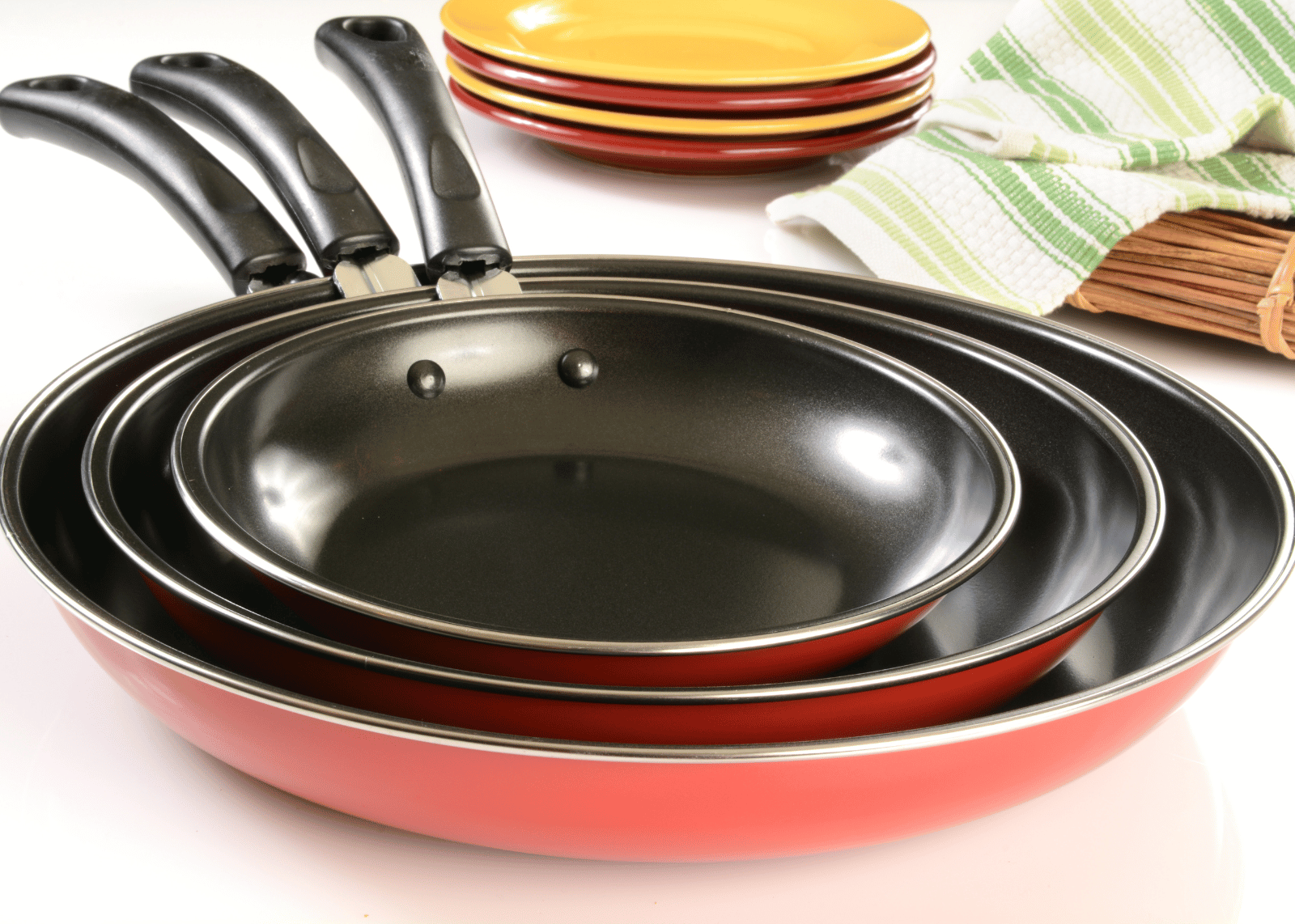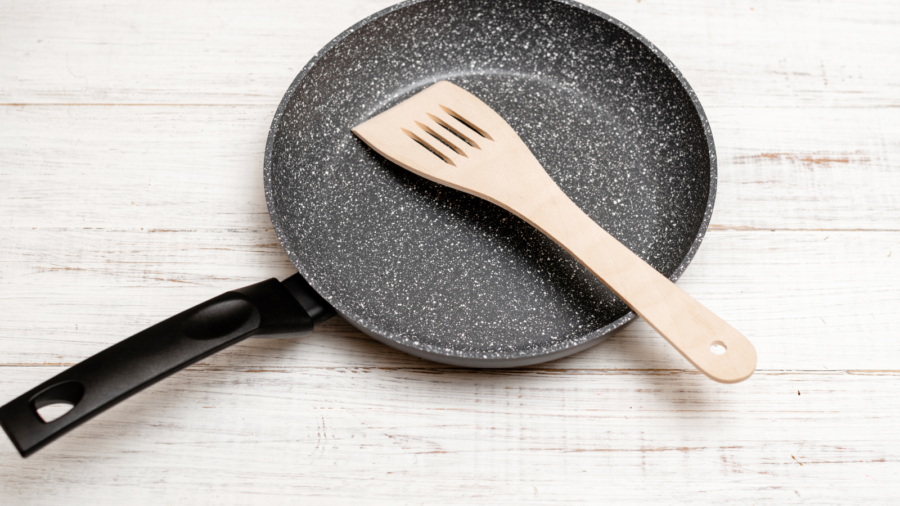Stop Using Non-Stick Cookware
In the modern kitchen, non-stick cookware has become a staple due to its convenience and ease of use. However, emerging research suggests that these seemingly harmless kitchen tools could have serious implications for our health, particularly concerning hormonal balance in both men and women. In this blog, we will explore the adverse effects of non-stick cookware on hormones, delve into the science behind these effects, and discuss healthier alternatives that can replace non-stick pans in your kitchen.
The Problem with Non-Stick Cookware:
The Science Behind Non-Stick Coatings
Most non-stick cookware is coated with a substance called polytetrafluoroethylene (PTFE), commonly known as Teflon. PTFE provides a slick surface that prevents food from sticking, making cooking and cleaning much easier. However, the production and degradation of PTFE can release harmful chemicals into the environment and our bodies.
One of the main concerns is the release of perfluorooctanoic acid (PFOA) during the manufacturing process of PTFE-coated cookware. Although many manufacturers claim to have phased out PFOA, other per- and poly-fluoroalkyl substances (PFAS) are still used, which can have similar health risks
How Non-Stick Chemicals Affect Hormones
Research has shown that exposure to PFAS can disrupt endocrine function, which regulates hormone production and balance in the body. Hormonal imbalances can lead to a variety of health issues, including reproductive problems, thyroid dysfunction, and metabolic disorders.
Effects on Women
1. Reproductive Health: Studies indicate that PFAS exposure can negatively affect reproductive health in women. High levels of PFAS have been linked to decreased fertility, irregular menstrual cycles, and early menopause. 2. Thyroid Function: PFAS can interfere with thyroid hormones, which are crucial for regulating metabolism, energy levels, and overall hormonal balance. Disruption in thyroid function can lead to hypothyroidism or hyperthyroidism.
Effects on Men
1. Testosterone Levels: In men, PFAS exposure has been associated with reduced testosterone levels. Low testosterone can affect muscle mass, energy levels, mood, and sexual health. 2. Sperm Quality: There is evidence that PFAS can reduce sperm quality and count, potentially leading to infertility and other reproductive issues.
General Health Risks
Beyond hormonal disruptions, non-stick cookware chemicals can contribute to other health issues such as: – Cancer: Some studies have linked PFAS exposure to an increased risk of certain cancers, including testicular and kidney cancer. – Immune System Suppression: PFAS can weaken the immune system, making the body more susceptible to infections and diseases. – Liver Damage: Long-term exposure to these chemicals can cause liver damage and affect its ability to function properly.
Healthy Alternatives to Non-Stick Cookware
Given the potential risks associated with non-stick cookware, it is crucial to explore healthier alternatives. Here are some safe and effective options:
1. Cast Iron
Benefits:
– Durability: Cast iron pans are incredibly durable and can last a lifetime if properly cared for. – Natural Non-Stick: When seasoned correctly, cast iron provides a natural non-stick surface. – Nutritional Value: Cooking with cast iron can increase the iron content of your food, which is beneficial, especially for those with iron deficiencies.
Tips:
– Regularly season your cast iron pan to maintain its non-stick properties. – Avoid using soap for cleaning; instead, use hot water and a stiff brush to scrub away food residue.
2. Stainless Steel
Benefits:
– Safety: Stainless steel is non-reactive, meaning it doesn’t leach harmful chemicals into your food. – Versatility: These pans are great for browning, searing, and deglazing. – Ease of Cleaning: Stainless steel is easy to clean and often dishwasher safe.
Tips:
– Preheat the pan and use enough oil to prevent sticking. – For stubborn residue, soak the pan in warm soapy water before scrubbing.
3. Ceramic
Benefits:
– Non-Toxic: Ceramic coatings are typically free from PTFE and PFAS, making them a safer alternative. – Non-Stick: They offer a good non-stick surface without the health risks associated with traditional non-stick coatings.
Tips:
– Avoid using metal utensils to prevent scratching the ceramic coating. – Hand wash with mild detergent to prolong the lifespan of the coating.
4. Glass
Benefits:
– Safety: Glass cookware does not react with food and is free from harmful chemicals. – Visibility: It’s easy to monitor cooking progress due to its transparency. – Versatility: Suitable for baking, microwaving, and storing food.
Tips:
– Use for baking and microwave cooking rather than stovetop use. – Handle with care to avoid breaking or chipping.
5. Stoneware
Benefits:
– Even Cooking: Stoneware provides even heat distribution, which is excellent for baking. – Non-Toxic: Like glass, it doesn’t leach chemicals into food.
Tips:
– Preheat stoneware with the oven to avoid thermal shock. – Use with care to prevent cracking.

Implementing Healthier Cooking Practices
Switching to healthier cookware is a great start, but adopting healthy cooking practices can further minimize health risks and enhance your overall well-being.
1. Avoid High Heat
High temperatures can degrade cookware materials and release harmful chemicals. Use medium to low heat settings for most cooking tasks.
2. Use Healthy Oils
Opt for oils with high smoke points like olive oil, avocado oil, and coconut oil. These oils are less likely to break down and release toxins when heated.
3. Proper Cleaning and Maintenance
Follow manufacturer guidelines for cleaning and maintaining your cookware to ensure its longevity and performance. Avoid harsh abrasives and always dry your pans thoroughly to prevent rust.
4. Regularly Replace Worn Cookware
Even the best cookware needs to be replaced eventually. Inspect your pans regularly for signs of wear and tear, such as scratches or chips in the coating, which can harbor bacteria and lead to contamination.
5. Mind Your Utensils
Use wooden, silicone, or plastic utensils to prevent scratching and damaging the surface of your cookware. This is especially important for non-stick and ceramic-coated pans.
Conclusion
While non-stick cookware offers convenience, the potential health risks associated with its use, particularly concerning hormone disruption, cannot be ignored. By understanding the science behind these risks and exploring healthier alternatives, you can make informed choices that benefit both your health and the environment.
Switching to safer cookware options like cast iron, stainless steel, ceramic, glass, and stoneware can significantly reduce your exposure to harmful chemicals. Coupled with healthy cooking practices, you can create a safer kitchen environment that supports your well-being.





[…] Transactions are processed on a peer-to-peer network eliminating the need for intermediate diaries like banks or financial institutions. Transactions and user data are secured using advanced cryptography making them highly resistant to hacking and fraud. Transaction of the pen has lower fees compared to traditional banking in payment systems, especially for cross-border transfers. All transactions are recorded on a public lead girl providing complete transparency and accountability. Cryptocurrency provides financial services to individuals without access to traditional banking enabling them to participate global economy. It can be processed in minutes regardless of geographical location, unlike traditional banking systems that take many days. It can also be sent and received at any time without the constant banking hours are holidays. Cryptocurrencies like Ethereum enable programmable money through smart contracts which can automate complex financial agreements and processes. Cryptocurrency has shown significant flies appreciation over time offering high potential returns to investors. We can effectively communicate the various advantages of cryptocurrency showcasing their potential to transform the financial landscape and empower individuals worldwide. […]